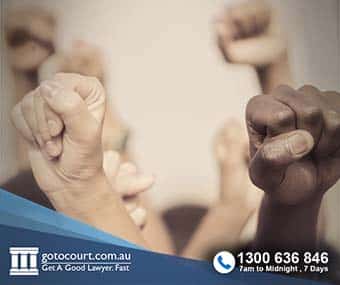Human Rights Act (ACT)
The Human Rights Act is an ordinary act passed by the ACT parliament in 2004. It promotes human rights in the ACT by requiring ACT legislation to be interpreted in a way that is consistent with its provisions. The ACT is one of three Australian jurisdictions to have passed human rights legislation (the others being Victoria and Queensland). The Human Rights Act was passed after the final report of the ACT Bill of Rights Consultative Committee was tabled, indicating that the majority of ACT citizens supported the passage of a human rights act.
What rights are protected?
The majority of the human rights protected by the Human Rights Act are rights found in the International Covenant on Civil and Political Rights (ICCPR), which Australia ratified in 1980. These include the following:
The right to freedom of thought, conscience, religion and belief
Every one has the right to freedom of thought, conscience and religion, including the right to follow a religion of their choice. (Section 14)
Peaceful assembly
Everyone has the right to peaceful assembly and freedom of association (Section 15).
Freedom of expression
Everyone has the right to hold opinions free from interference (Section 16).
Freedom of movement
Everyone has the right to move freely within the ACT and to enter and leave it (Section 13).
Right to liberty and security of person
Everyone has the right to liberty and security of person. No one may be deprived of their liberty except in accordance with procedures established by law (Section 18).
Right to a fair trial
Everyone has the right to have criminal charges tried by a competent and impartial court after a fair and public hearing. However, the public and the press may be excluded from all or part of the proceeding in some circumstances (Section 21).
Children in the justice system
The act provides that children accused of criminal offence must be held separately from accused adults and treated in a way that is appropriate for a person of the child’s age (Section 20).
Ethnic minorities
Anyone who belongs to an ethnic, religious or linguistic minority must be allowed to enjoy their culture, practice their religion or use their language (Section 27).
Right to education
Every child has the right to free schooling. Everyone has the right to further education and vocational training. Everyone is entitled to enjoy these rights without discrimination (Section 27A).
How do these rights relate to ACT laws?
Courts must interpret ACT laws consistently with the provisions of the Human Rights Act insofar as this is possible (Section 30). If the Supreme Court considers that an ACT law is not consistent with a human right, it may make a ‘declaration of incompatibility’. The declaration of incompatibility does not affect the validity or operation of the law or the rights or obligations of anyone (Section 32).
A copy of the declaration of incompatibility must be given to the Attorney-General. The Attorney-General must then present the declaration of incompatibility to the Legislative Assembly and within six months, present a response to it to the Legislative Assembly.
Either the Attorney-General or the Human Rights Commissioner can intervene in a proceeding before a court that involves the application of the Human Rights Act.
Proposed ACT laws
Every time a new bill is presented to the ACT Legislative Assembly, the Attorney-General must prepare a compatibility statement for the Legislative Assembly, stating:
- whether the bill is consistent with human rights;
- if it is not consistent with human rights, how it is inconsistent.
Other human rights legislation
In 2006, Victoria became the second jurisdiction to enact human rights legislation in the Charter of Human Rights and Responsibilities Act. A Human Rights Act is currently before the Queensland parliament and is expected to be passed during 2019.
A bill of rights for Australia?
There is no federal human rights act and the Australian constitution does not contain human rights protections with the exceptions of freedom of religion, the right to vote and an implied freedom of political communication. The need for a bill of rights for Australia has been periodically asserted for the last several decades, with many voices in the community and government sectors feeling that the country has inadequate human rights protections, despite having been a leader in human rights in the past. Australia was a founding member of the United Nations and was instrumental in developing the International Declaration of Human Rights. It was also the first country to extend to women both the right to vote and the right to stand for federal parliament, in 1902.
If you require legal advice or representation in any legal matter please contact Go To Court Lawyers.








